B2B eCommerce in 2025? Oh gosh, everyone is hopping on this train—and quickly! Businesses today yearn for systems that serve purposes beyond only sales. They desire instruments that save time, run well, enable global travel free from hassle. Plerdy leaps in at that point. It’s not only another tool; it makes your website run better so you won’t lose visitors from slow pages or clumsy design. Choosing the correct B2B platform is like choosing the proper shoes; you need the perfect fit, or it’s going to hurt as AI gets smarter, mobile purchasing grows like crazy, and businesses network all around.
Why B2B Ecommerce is Essential in 2025
By 2025, B2B eCommerce is going crazy—no kidding! This year the worldwide B2B eCommerce sector is expected to exceed over $25 trillion. That is not change in pocket money. Businesses are not only purchasing office chairs and coffee filters these days. Through eCommerce websites, they are ordering vast quantities of machinery, software, and all types of services. The great digital transformation spreading throughout sectors is the source of this surge. When you can buy online in minutes, why waste weeks on calls and emails? These days, eCommerce systems track delivery, automatically process orders, and maintain supply networks operating like clockwork.
And considering the advantages? Pretty lovely. By eliminating middlemen and purchasing straight through B2B eCommerce websites, businesses minimize costs. Traveling worldwide? easier than it has ever been. Imagine a tiny business in Romania catering to Australian customers from within the office without leaving. That is reality rather than a dream with eCommerce. Also expected by consumers are seamless experiences. Nobody likes to deal with unwieldy websites or limitless forms. Platforms like Plerdy then come in handy for businesses trying to improve their eCommerce user experience, increase conversions, and retain customers by means of polishing their UX.
There are big players all in. Knowing that B2B eCommerce is the direction of business, Siemens, Alibaba, and Amazon Business are putting billions into it. Imagine ordering $500,000 for real estate building tools with a few clicks. Sounds insane? No more. Businesses running against this trend run swiftly behind others. With eCommerce changing B2B, sink or swim is how things work. Better still than being left on the sidelines observing. Dive in.
Criteria for Selecting the Best B2B Ecommerce Websites
Selecting the correct B2B eCommerce website for 2025 will transform your business rather than just be a haphazard decision. Real estate and eCommerce entrepreneurs cannot waste time on websites that freeze or perplex customers. Given that more than 65% of B2B transactions take place online, selecting a website that runs perfectly is absolutely vital. One terrible event? You miss chances. Good systems save you hours, simplify life, and—to be honest—keep clients pleased.
User-Friendly Interface and Navigation
You ever find yourself lost on a B2B eCommerce website? It like entering a store without of signage. Rather than annoy you, a solid eCommerce website should lead you. Matters include clear menus, basic designs, and straightforward search options. Quick search bars, mega-menus, and classified product listings enable you to discover what you need in seconds. You search, you click, you’re done; Amazon Business nails this. Developers of real estate ordering building equipment? They need quick access, not a labyrinth.
Customizable Features and Solutions
Your business is not a one-size-fits-all, hence why would you compromise for generic eCommerce solutions? Customized pricing, contract-based offers, and customizable dashboards on B2B eCommerce systems enable you do business your way. Using tailored platforms, big businesses like Siemens handle mass orders and negotiate deals valued in millions. Having flexibility will save thousands if you run an eCommerce business buying supplies in volume or deal in real estate. Custom features are how you close major business, not only “nice to have.”
Secure and Efficient Payment Options
In eCommerce, money travels quickly; you want payment issues not to slow you down. Safe gateways protect transactions, and customizable terms including invoice payments help to keep things orderly. Imagine ordering $200K in building supplies—getting a huge discount just by using the correct B2B website feels very nice, right? For businesses juggling limited budgets and deadlines, platforms like SAP Ariba provide quick and safe payments—a lifaver.
Choosing the greatest B2B eCommerce website in 2025 will be about working smarter, saving money, and expanding your business free from additional complications rather than only about cool features.
Top 10 B2B Ecommerce Websites in 2025
1. Alibaba
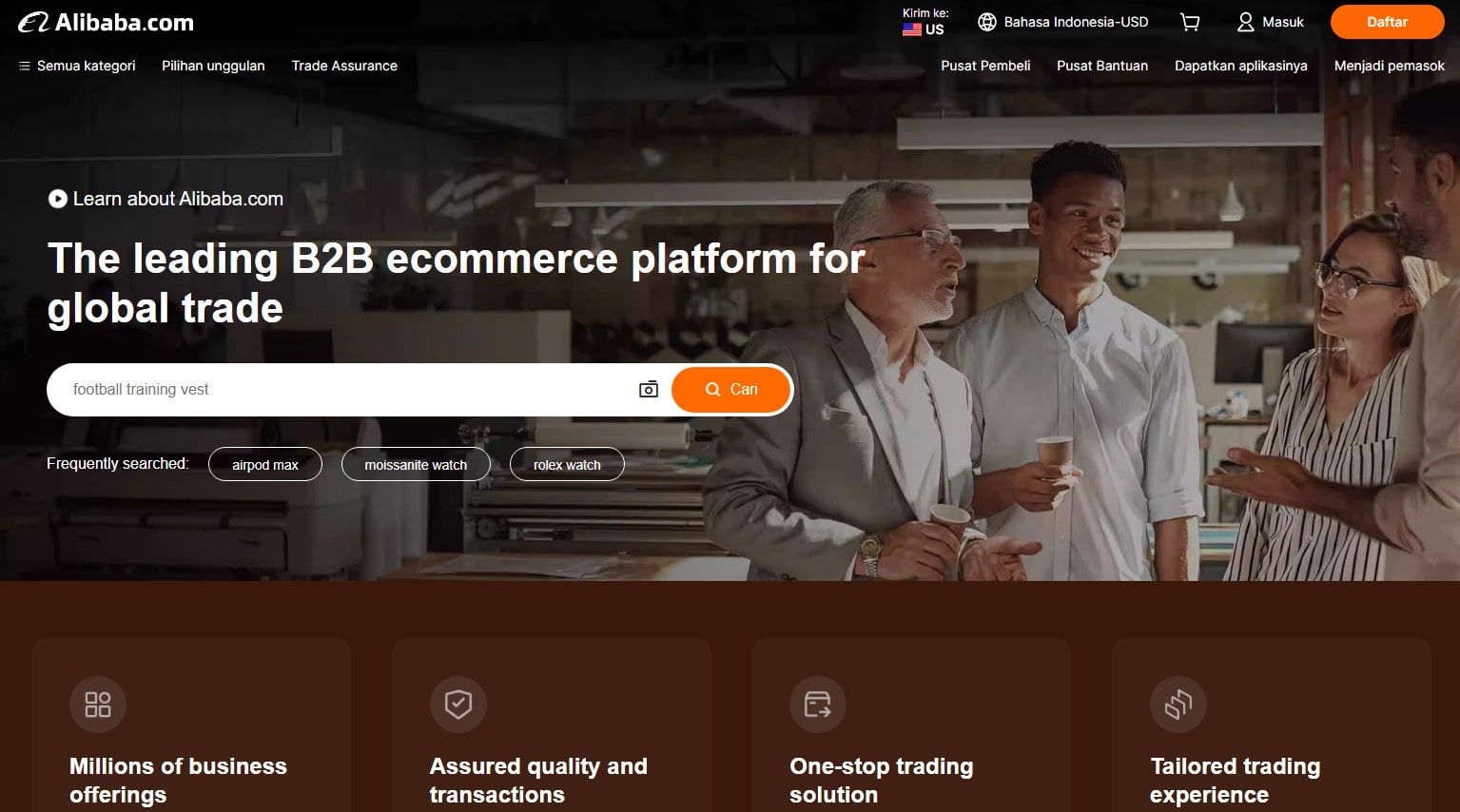
In the B2B eCommerce scene, Alibaba is rather dominant. Millions of businesses all around are connected to its internet; really, their worldwide reach is insane! With a huge eCommerce product catalog, you may discover everything: gadgets, real estate building supplies, or even personalized clothes. Your office or parts for machines call for 200 desks. Alibaba knows just what I need. Furthermore, the website provides language support, therefore enabling businesses all around to navigate and purchase more easily.
The coolest thing is It is rather flexible. Large businesses and entrepreneurs can bargain on costs, receive customized solutions, and change mass purchases. When juggling intricate eCommerce supply chains, this is gold. Security’s sturdy too; trade assurance guarantees safe transactions. Nobody wants their money drifting into thin air. Alibaba manages over forty percent of worldwide B2B eCommerce transactions, did you know? That is quite wild. Small startups to multinational organizations use this platform for quick and consistent product sourcing, which makes sense.
2. Amazon Business
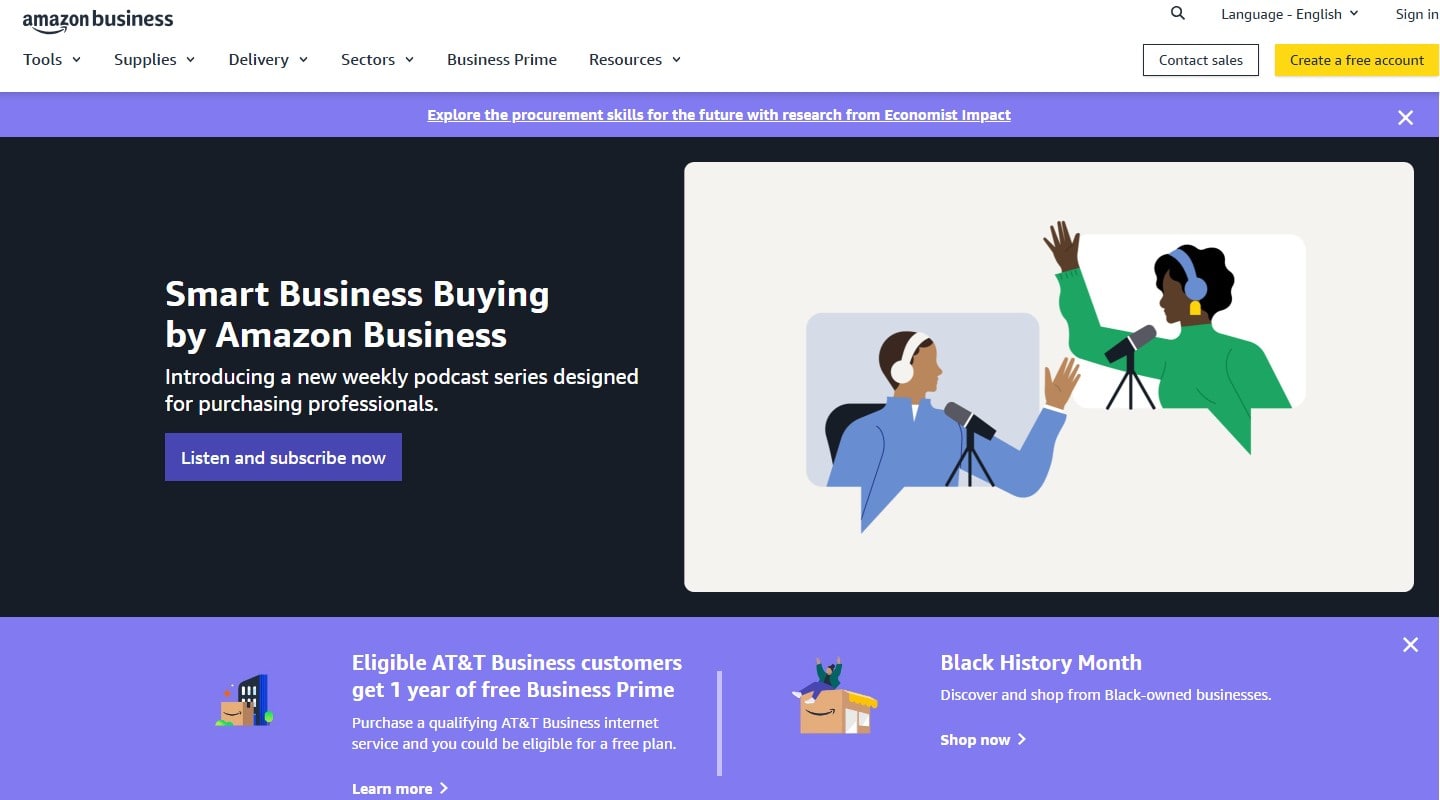
Amazon has purposes other than weekend shopping frenzy. Serving sectors from healthcare to construction, Amazon Business has grown to be a behemoth in B2B eCommerce. The great eCommerce inventory on the website offers everything—office supplies, tools, software, you name it. 500 laptops are needed. Tiered pricing and bulk order choices will help you to save money. Rather helpful, right?
Amazon Business excels mostly in integration. It interacts effortlessly with ERP systems, allowing businesses to handle procurement free from problems. Features like invoice-based payments and expenditure limits are appreciated by entrepreneurs, large businesses, even startups. Nobody likes to bother about with sloppy accounting. For their B2B eCommerce needs, major corporations such as Siemens and Intel depend on this platform; thus, prove it works. Amazon Business has your back if you are looking for an eCommerce website that saves money and time.
3. Grainger
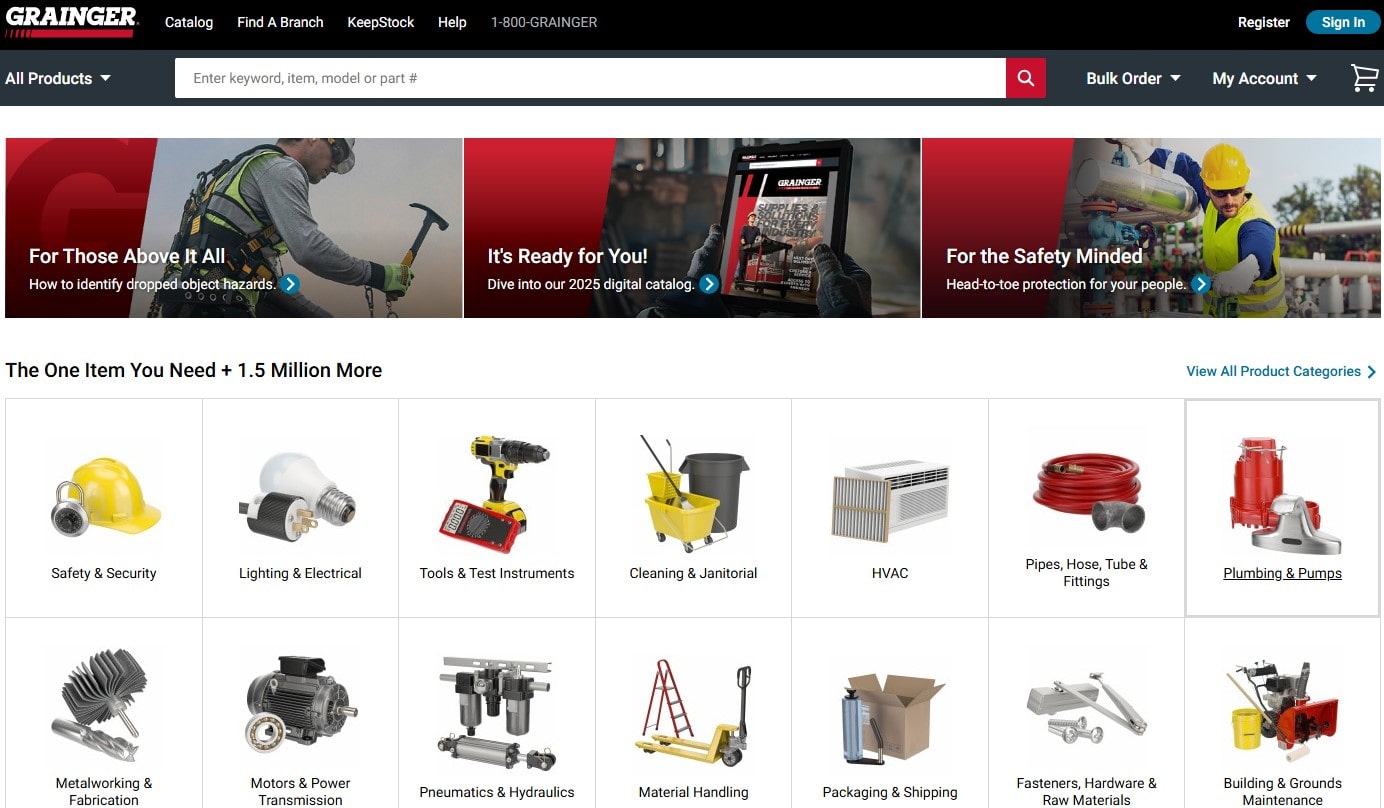
In B2B eCommerce, Grainger is a well-known name particularly for industrial supply searches. Their website boasts about 1.5 million products. You name it; they have nuts, bolts, safety gear. Although maintaining that large eCommerce catalog is difficult, Grainger masters it with tools that simplify your purchasing experience. Running a business and needing supplies quickly calls for the quick reorder option, which is a lifesaver. When machines are waiting, nobody has time to persevere through countless pages.
Their clientele support? Perfect. You can obtain real help by phone, email, or chat; no bots will send you in circles. That counts given deadlines are weighing down your neck. Big businesses like Boeing and General Electric depend on Grainger’s eCommerce solutions to keep operations operating. With all that, it makes sense why B2B sector entrepreneurs find themselves returning. Your business needs dependable eCommerce technologies. The website Grainger provides delivers.
4. MSC Direct
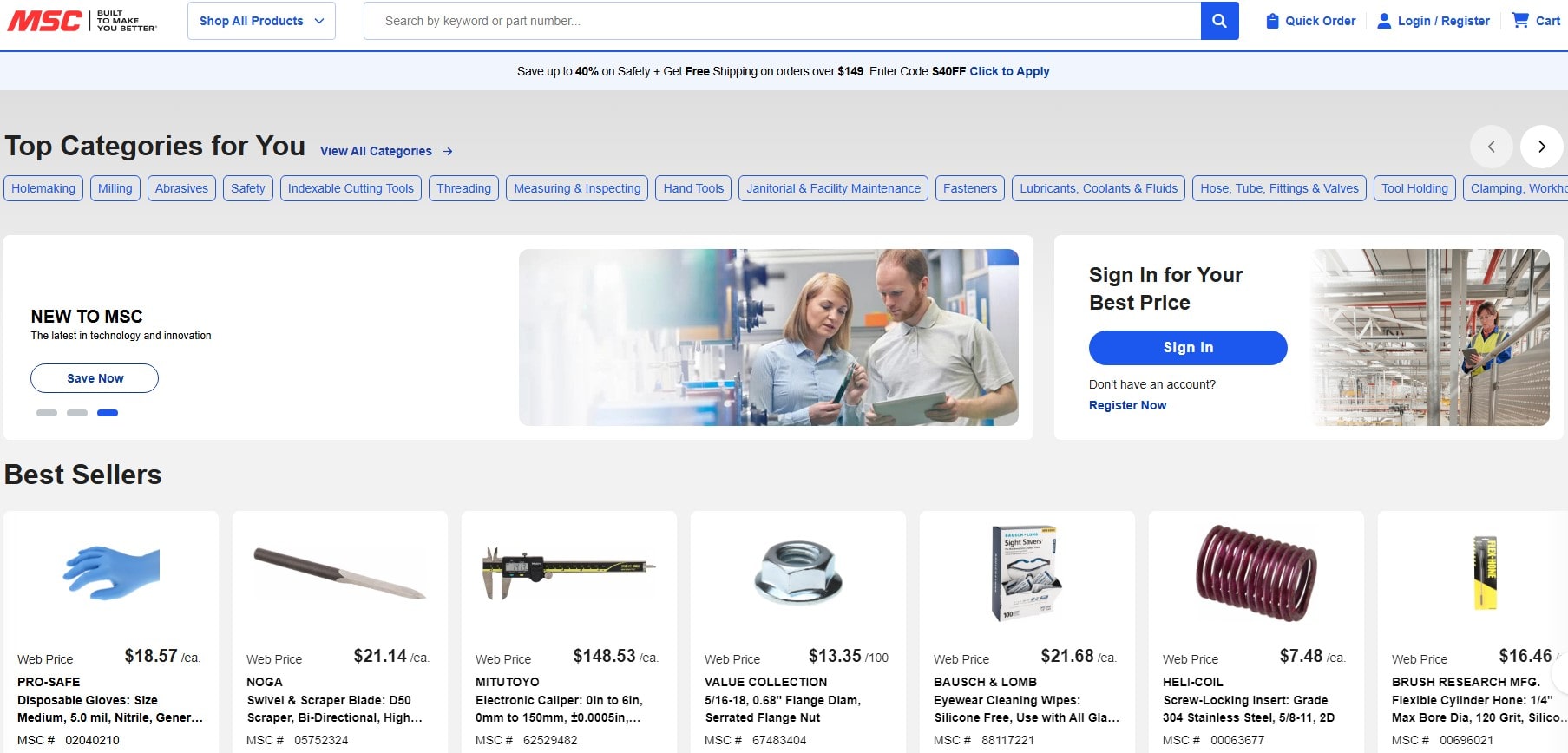
Another heavyweight B2B eCommerce player with an industrial equipment concentration is MSC Direct. Though without all the walking, their website makes you feel as though you are in a massive virtual warehouse. You get quick loading pages, effective navigation, and clever product comparison features saving heaps of time.
Why does MSC stand out? Personalization. Once you log in, you get instant access to past orders, unique pricing, recommendations suited to your shopping behavior. For businesses looking to simplify their procurement process, that is gold. Imagine ordering 500 drill bits from the website knowing your tastes. fairly tidy.
MSC is used one reason only—it works—by big brands in manufacturing and construction. Their eCommerce system enables businesses to avoid expensive downtime, speed up sales, and decrease expenses. MSC Direct should be on your radar if you are in B2B and seeking for an eCommerce website that exactly fits you.
5. Quill
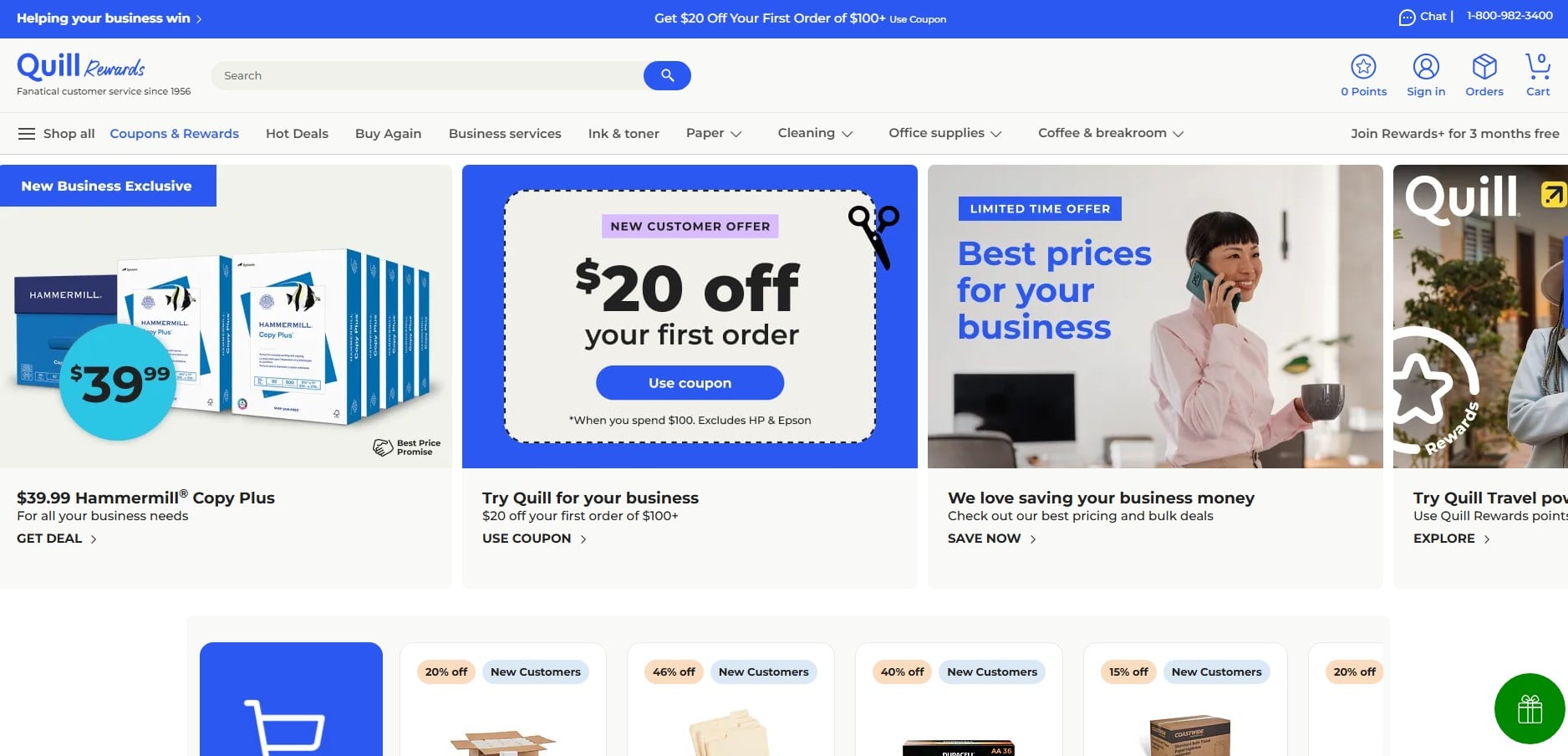
If your business runs on office supplies, Quell is a B2B eCommerce platform that will help you back-off. Imagine requiring 500 pens, printer ink, and coffee filters—Quill makes it quite simple to get all at once. Their website is easy to use; you won’t get lost turning through countless pages. Just search, click, and have a look. That’s simple enough. For businesses trying to cut a few dollars, bulk discounts also revolutionize things. If you are purchasing large quantities, those discounts build quickly.
Their several payment choices are interesting. You might proceed with invoice billing, open business accounts, or use credit cards. When you have little cash flow and expenses are showing up everywhere, that is quite helpful. Entrepreneurs find great appeal in this ability. Small legal firms, neighborhood schools, and startups among other businesses use Quill’s eCommerce tools to maintain inventory without overspending. Having a website like Quill bookmarked saves time and money if you work in B2B.
6. Global Sources
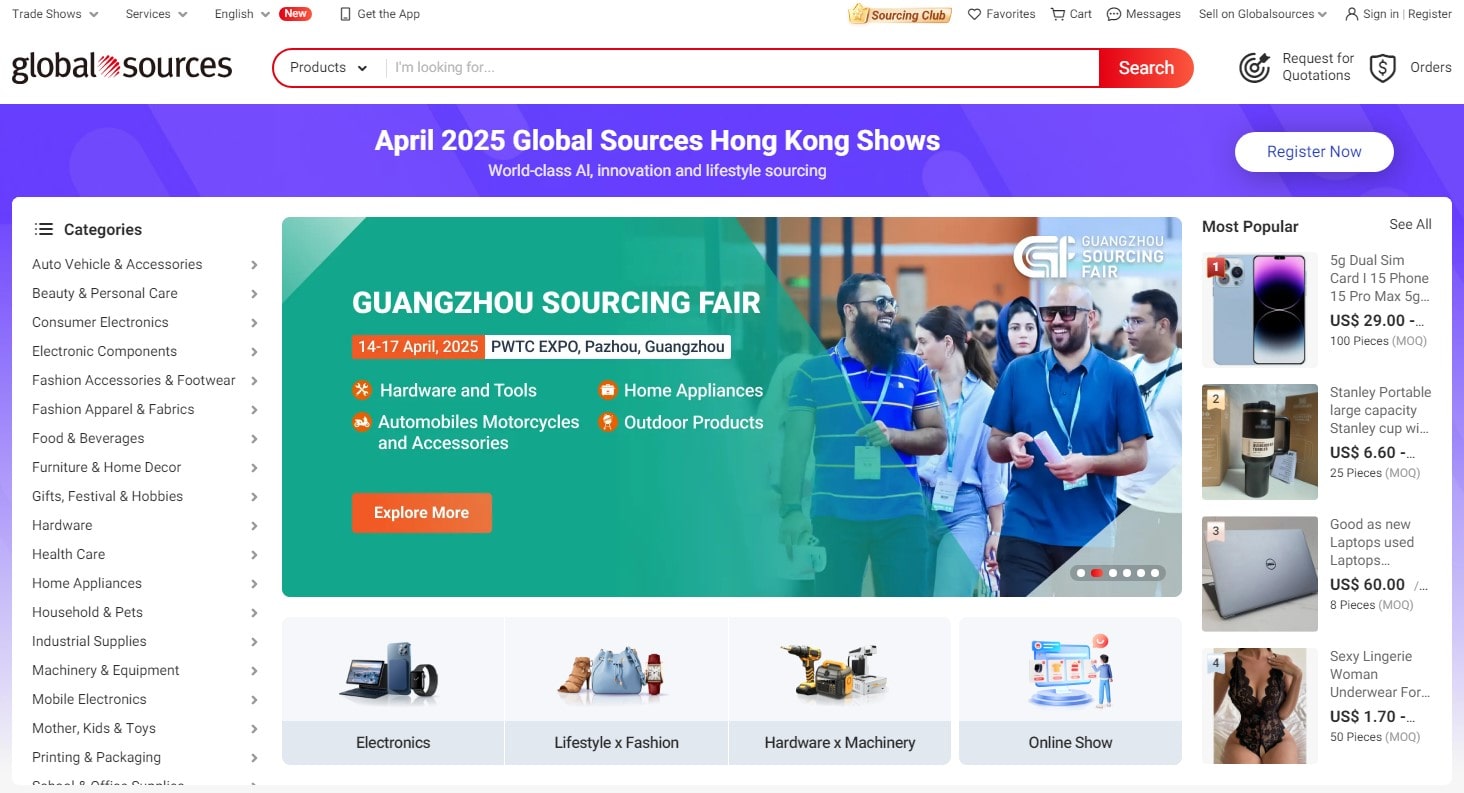
Connecting global buyers with confirmed Asian suppliers, Global Sources is a powerhouse in the B2B eCommerce scene. This website is where you should search if you are an entrepreneur looking for dependable manufacturers. The platform has been in use for more than 50 years, which says volumes about its legitimacy. From electronics to fashion items, big firms depend on it for procurement.
Their sophisticated search criteria help one to easily locate items. Want bespoke textiles or devices? In seconds you will locate vendors. They also hold large trade events in Hong Kong—just picture seeing vendors personally and concluding business over coffee. Still another significant element is quality control. The website guarantees providers satisfy high criteria, so preventing you from being left with faulty goods.
Global Sources is a golden ticket for businesses in eCommerce hoping for worldwide expansion. With millions of products and hundreds of suppliers, our B2B platform lets you cross boundaries free from complications.
7. DHgate
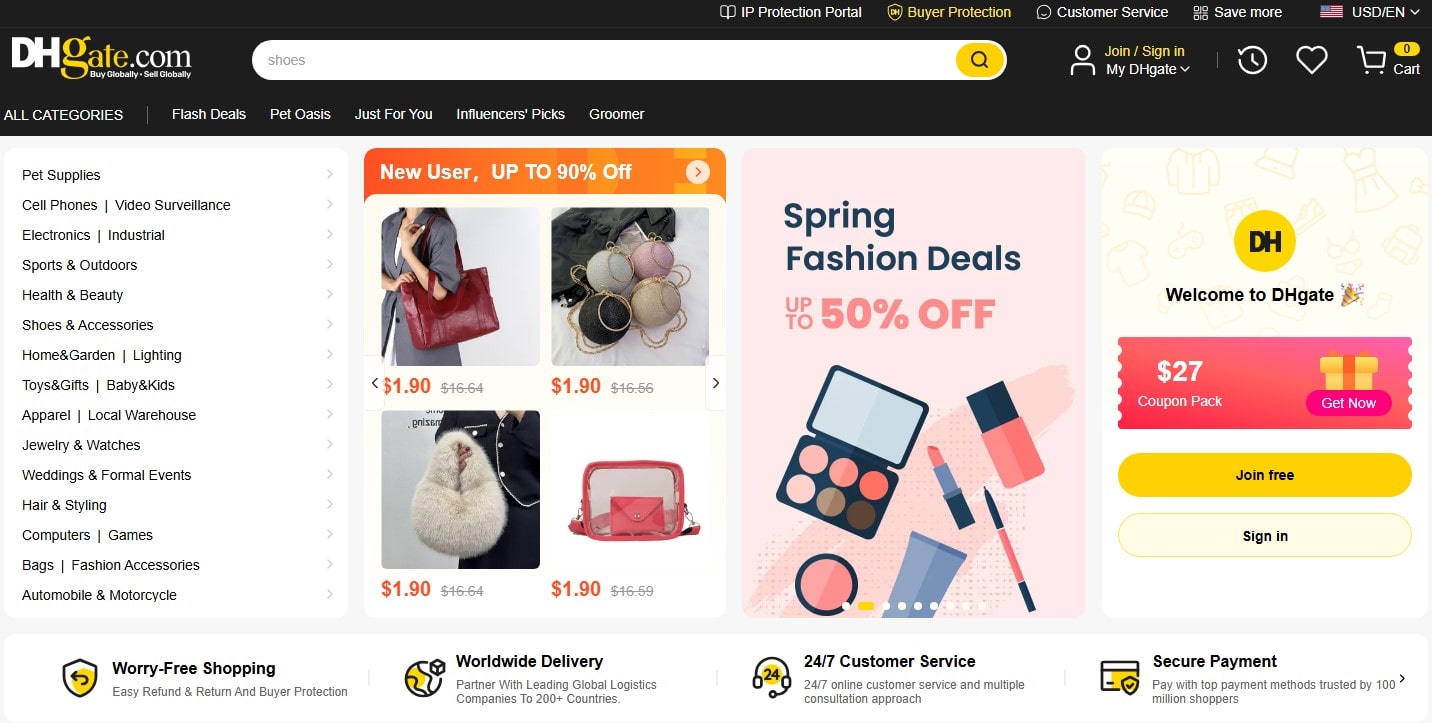
If you are looking for reasonably priced wholesale solutions, DHgate is a B2B eCommerce website ideal. Actually, this website has everything—from wedding gowns to electronics. It’s like entering a large virtual mall where you might find deals for your business without going broke. Because DHgate doesn’t force you to buy a pile of goods, small businesses appreciate it. Just ten phone covers are needed. Not too bad.
DHgate is unique in part because of its buyer protection scheme. You order and the money stays with DHgate until you verify everything is good. Particularly if you deal with foreign vendors or are new to eCommerce, it’s peace of mind. Furthermore, the small business-friendly policies of the website make it a preferred choice for those seeking to grow without running all kinds of danger. You’ll likely spend hours exploring with over 30 million things listed; but, that’s part of the fun, right?
8. ThomasNet
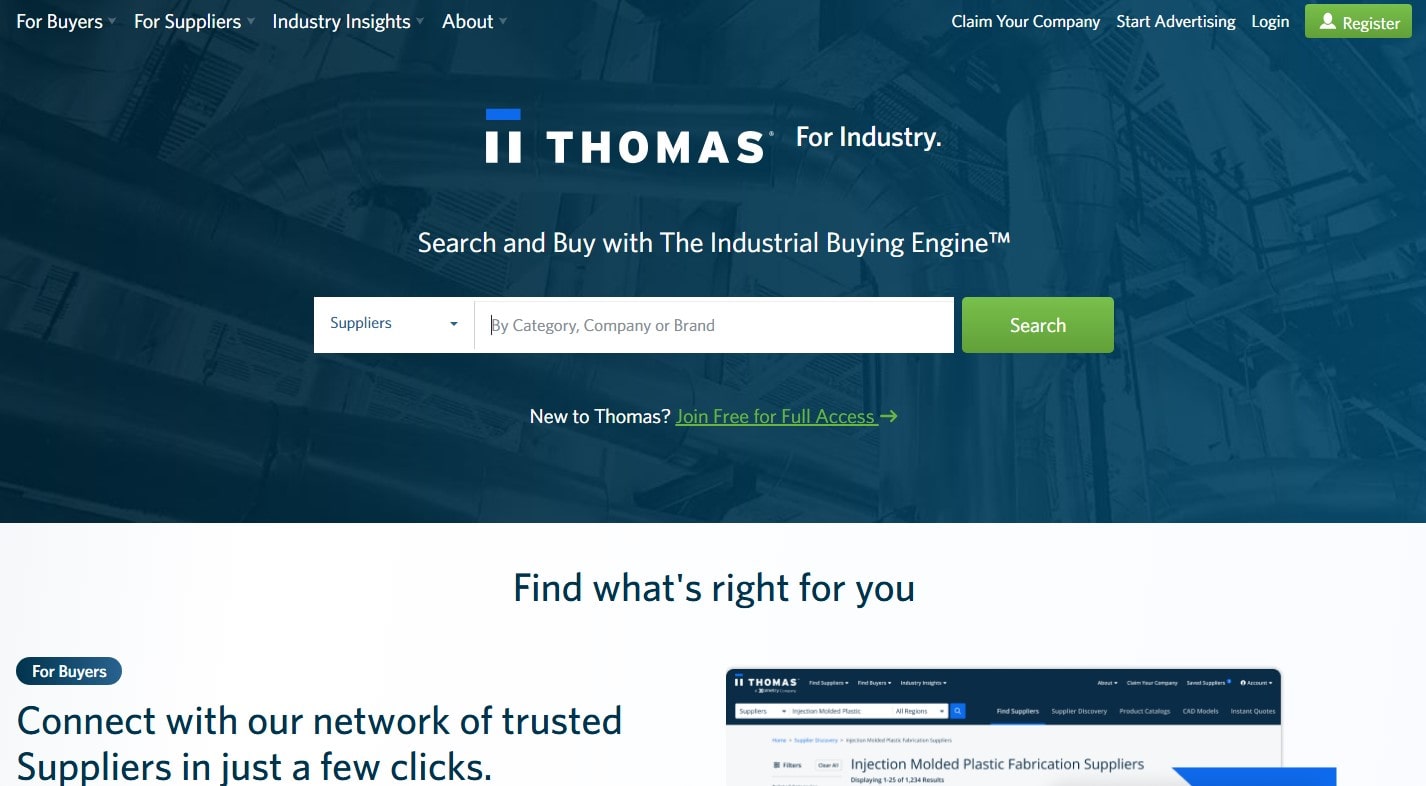
Should your business be in the manufacturing or industrial sectors, ThomasNet is a B2B eCommerce website you should bookmark. Like a large directory on steroids, it is loaded with confirmed vendors providing everything from machines to bespoke components. Since ThomasNet has been operational for more than 120 years, yes, they are quite knowledgeable about linking businesses.
Their strong method of supplier verification is fantastic. There are no dishonest salespeople here; you find the actual bargain. For procurement managers and engineers, the search features of the website are a dream. Demand ISO certified stainless steel components from a U.S.-based vendor. In a few clicks ThomasNet has you covered.
Big businesses like Boeing and General Electric source using ThomasNet, which says a lot. If you own an online store and require dependable B2B solutions for industrial supplies, you won’t find many websites with ThomasNet’s degree of dependability and precision.
9. Made-in-China
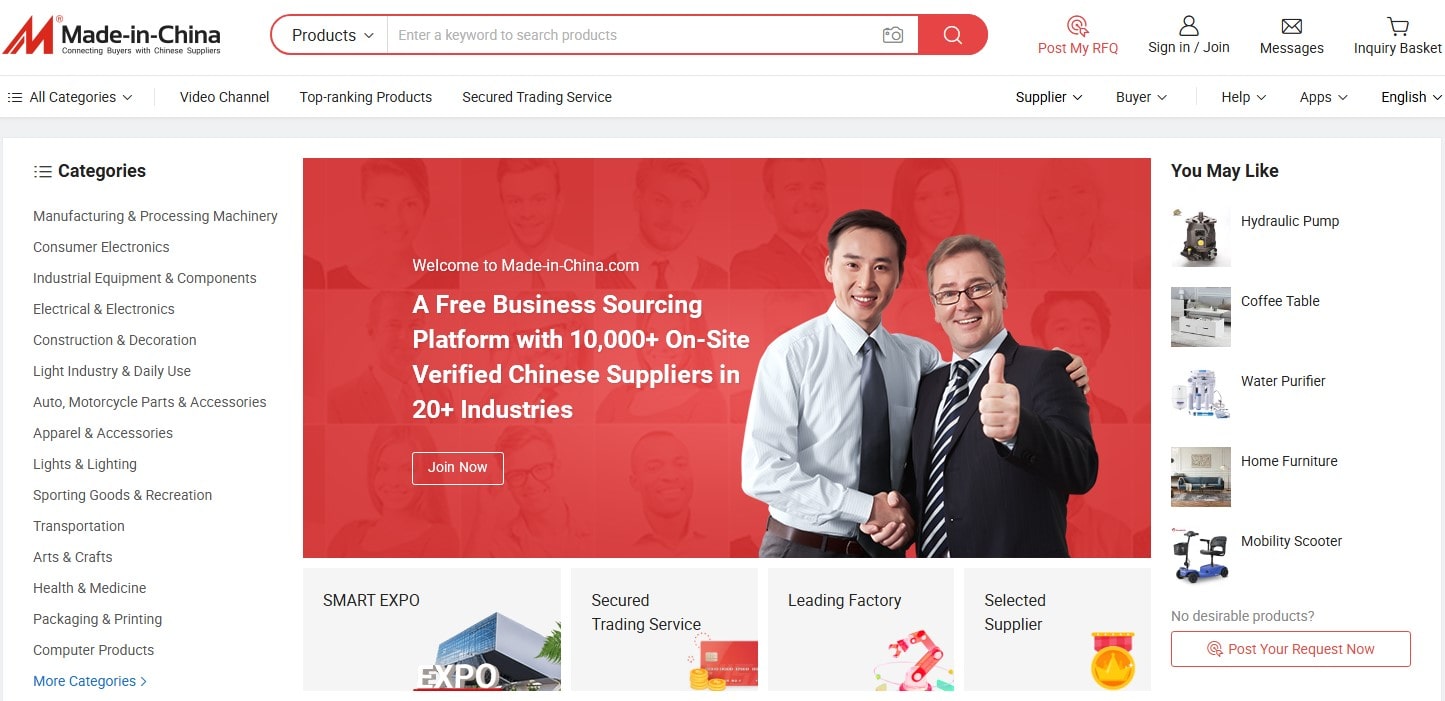
Designed for B2B eCommerce, Made-in- China offers almost everything produced in China. Really, the variety of goods is astounding—electronics, textiles, machinery—you mention it! This system has your back if your business requires customized orders. Many vendors provide comprehensive product details so you know exactly what you are purchasing. They also have a confirmed supplier program to aid you avoid frauds; nobody wants to squander money on dubious offers.
Made-in- China stands out for its RFQ ( Request for Quotation) tool. You send your specifications; bam—suppliers fight to present you the best offer. You feel a little like a VIP and online buying for your business is like that. Although you are new to B2B eCommerce, the reasonably user-friendly layout of the website will help you not get lost. This website is a gold mine if you know how to negotiate big businesses sourcing wholesale components.
10. Mercateo
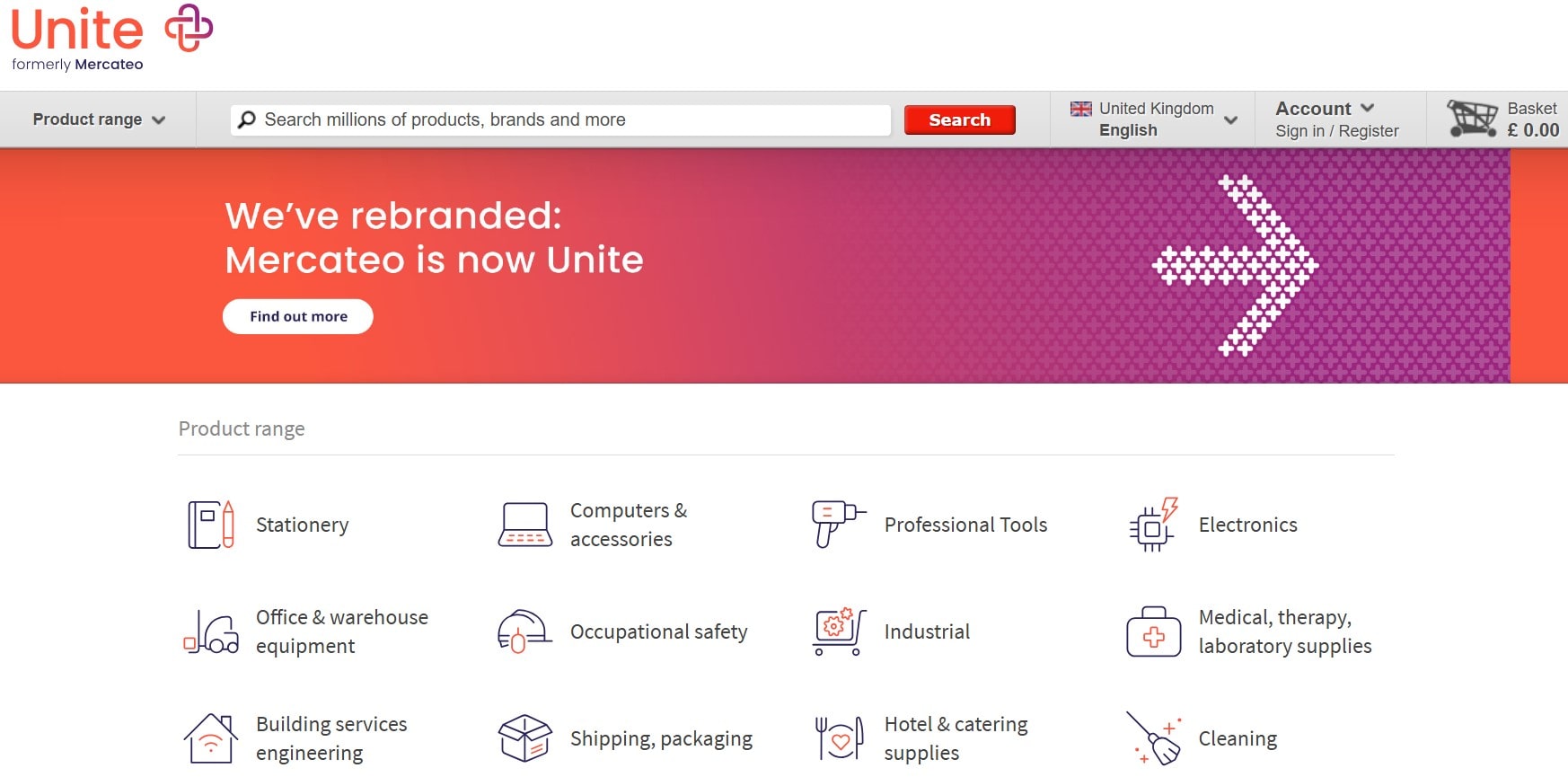
Remember Mercateo if you own a European businesses searching for a strong B2B eCommerce platform. It centers on procurement solutions, therefore simplifying life for businesses managing several vendors. Contract pricing and centralized supplier relationships let companies save money and time. Sounds dreamy, right? Imagine entering onto one website and having everything you could possibly need at your hand.
Mercateo also bundles some quite useful analytics tools. Either you need to maximize your buying plan or monitor your spending. They feature traits for that. This platform is used by businesses all throughout Europe for seamless procurement procedures; it is clear why. Whether you manage a big business or a small business, Mercateo offers solutions fit for your requirements. Their website also makes navigating simple; you won’t be clicking about in circles. Basically Mercateo is efficient, useful, and built for B2B eCommerce success.
Key Features of Successful B2B Ecommerce Websites
Developing a B2B eCommerce website successfully requires more than just product listing. It’s about ensuring everything runs fast and feels safe so users may have a seamless shopping experience. Companies have little time to waste, hence having the correct features can either make or ruin a business. Businesses like Alibaba, Amazon Business, and Grainger are aware of this; they have created systems to address actual consumer issues. Let’s explore the elements driving these B2B websites.
Advanced Search and Filtering Options
Looking for anything specific, you want not to surf endlessly last. Good B2B eCommerce websites save your time by including sophisticated search and filtering choices. You have easy searches by brand, SKU, or category. AI-driven recommendations shown on websites like Global Sources and ThomasNet highlight items you never would have known you wanted. Always looked for workplace chairs and finally included a coffee maker to your shopping list. That is intelligent artificial intelligence at work. This is about closing sales faster than convenience.
Mobile-Friendly Design
Business doesn’t end when leaving the workplace. Over sixty percent of B2B eCommerce transactions in 2025 occur on mobile devices. Imagine frustratingly trying to place a bulk order on a non-mobile friendly website? Websites with responsive designs that flow naturally across all devices like Mercateo and DHgate get this. Whether you use a laptop, tablet, or smartphone, the checkout procedure is quick and easy. There is no pinching screens or limitless zooming required.
Robust Security Measures
Nobody wants their information flying about the internet. Top B2C eCommerce websites thus make investments in robust security. For consumers, PCI compliance, safe log-in badges and verified trust badges inspire confidence. Little padlock symbol next to the website URL indicates your data is safe, not only for show. Businesses such as Quill and MSC Direct give data security first priority since client confidence is not optional but rather a necessary. Even the best-designed website will not keep customers returning without strong security.
How to Choose the Right B2B Ecommerce Platform for Your Business
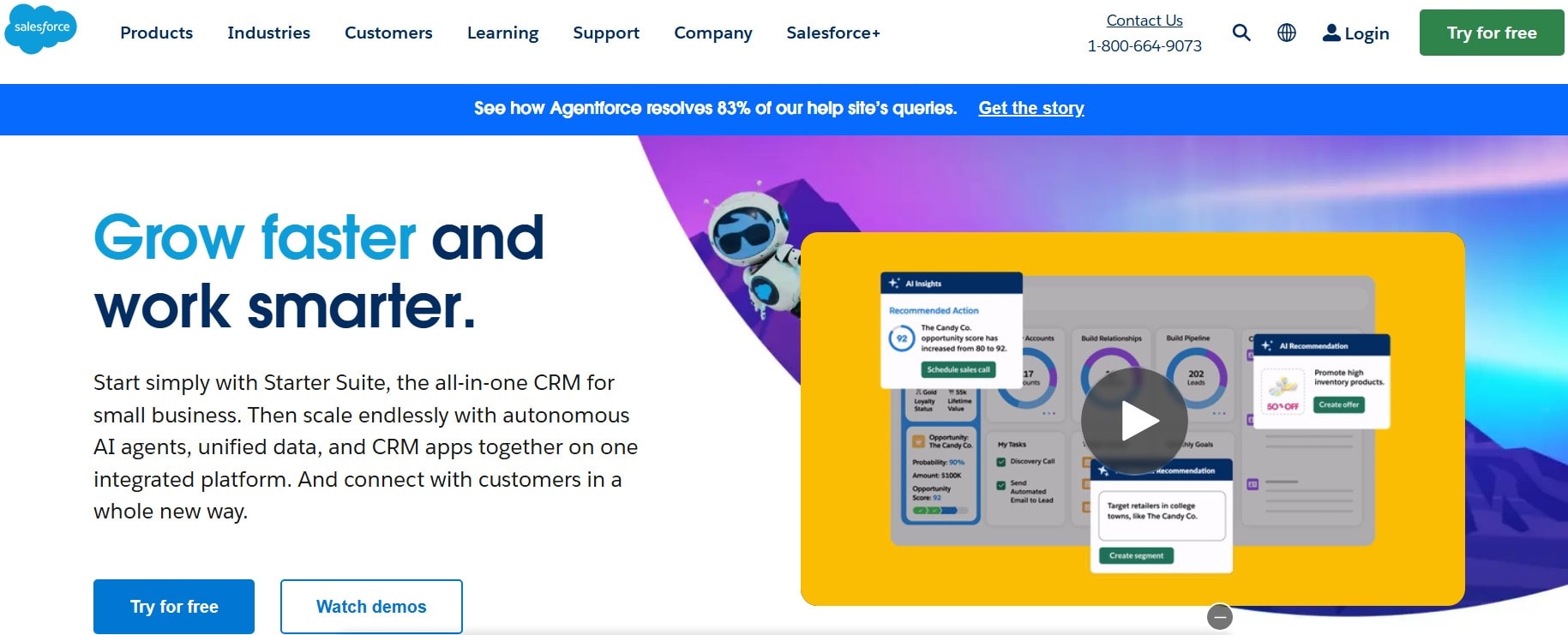
Selecting the appropriate B2B eCommerce platform requires more than just visiting any arbitrary website. It’s about choosing options that advance your business, enhance customer satisfaction, and prevent IT headaches. The ideal eCommerce platform lets you scale faster, better control orders, and boost sales. Make a mistake in this decision and you will spend hours resolving issues nobody wants. Top firms including Alibaba, Amazon Business, and Mercateo chose platforms aligned with their eCommerce objectives rather than haphazard development. How then can you choose the best B2B website solution for your business? Let’s dissect it here.
Assess Your Business Needs
Spend a moment considering the actual demands of your business. Your product catalog is how large? Are you marketing office supplies, industrial tools, or electronics? Small business eCommerce websites require different technologies than large multinational corporations. Should your website feature hundreds of goods, you will want scalable solutions able to accommodate expansion and sophisticated search filters. Another important issue is industry emphasis. Offering building supplies? You might find better fit for platforms like ThomasNet than for DHgate. Getting ready for growth? Make sure the eCommerce system can manage twice the traffic projected next year. The objective is straightforward: choose something that, when your B2C company expands, won’t hold you back.
Evaluate Pricing Models and Features
Cost is important; yet, so are features. Free eCommerce websites are appealing until you find unstated costs. Although subscription models can seem expensive, they usually provide stronger connection with your website, bulk order options, and live customer service. Take Global Sources; their flexible contracts fit businesses looking for unique ideas. Amazon Business offers tiered pricing, which lets varying-sized B2B firms cut costs. Remember to also review transaction fees and prices for additional services. Want round-the-clock tech assistance? Check to see whether it is included. The greatest eCommerce systems not only look great but also help your business run more smoothly free from unanticipated expenses down-stream.
Conclusion
Choosing the correct B2B eCommerce platform for 2025 is not just a chore but also what keeps your business forward. Choosing intelligently can save time, money, and loads of worry from choices ranging from behemoths like Alibaba to platforms catered for particular sectors. Don’t merely dash in. Examine closely features, cost, and how each website helps you expand. Your company expects answers that complement its objectives, not ones that slow you down. Fast changing trends include new payment mechanisms, mobile-friendly designs, and artificial intelligence tools. Keep sharp, watch the changes, and you will position your eCommerce strategy for long-term gains.
